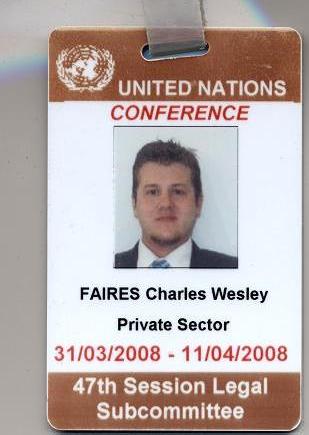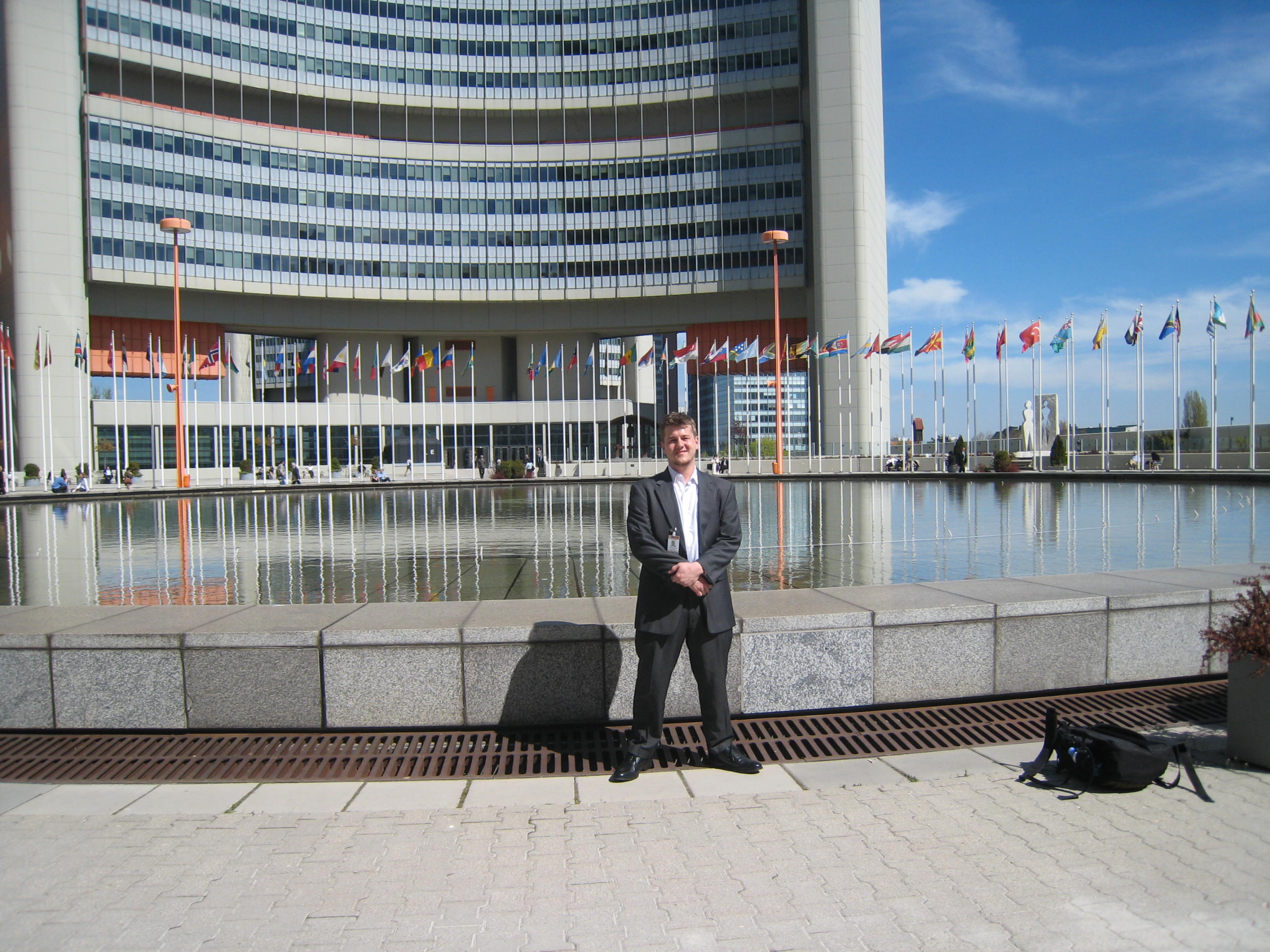Representing the Private Sector at the United Nations
Charles Wesley Faires' attendance at the U.N. COPUOS Legal Subcommittee in Vienna (2008)
On the United Nations Level, the Committee on Peaceful Uses of Outer Space (UN-COPUOS) is the only place on Earth where Outer Space Law is enacted. The Legal Subcommittee is where the laws are proposed. This is the source of space law.
In 2008, As a result of years of pestering the U.N. about the lack of “mankind's presence,” at these meetings, I was invited by the head of the United Nations Office for Outer Space Affairs to attend the Committee on Peaceful Uses for Outer Space (COPUOS) Legal Subcommittee in Vienna, as a representative on behalf of mankind.
What got me invited was my stance on representation – 100 countries are represented by one or two diplomats each, and discuss matters that could affect 100% of mankind. There exists no venue for private citizens to have their voice heard within the complete United Nations framework. This was the year that the Moon Treaty would be re-examined, and the push would be made for more countries to sign on.
The fact that my badge read “private sector” (I wasn't a government) and that I was 20 years younger than anyone else at the conference got mixed receptions. I was on “silent observer” status, so I wasn't allowed to talk. What I quickly came to realize was was that humanity's interest as a whole was at stake as far as having any influence on the future of decision making when it comes to outer space.
I sat there and watched, with my own eyes, the delegate from Belgium at the COPUOS Legal Subcommittee discuss the regime that would be placed over outer space under the Moon Agreement 1979. While the regime had been given room to grow with that treaty, he said, one thing was for sure, that it be "SUPRA-NATIONAL in its nature".
I couldn't help but mention my opposition to the proposed international oligarchy which would govern outer space and forbid private property for eternity.
All delegations were asked to express their reservations against accession to the Moon Agreement. I was a silent observer (invited by the head legal adviser at UNOOSA), so I wasn't allowed to talk – but I was expecting the US delegation to say everything I could think to say and then some, given the overwhelming outrage that treaty generated in the 80's. After the 5 pro-treaty delegations made their case, the silence was deafening. Not one delegation spoke out against this treaty. I took it upon myself to write this letter to the delegates opposing the Moon treaty and explaining my position.
I hadn't even gone there to flaunt my claim, or necessarily raise objection to the fact that the future of Outer Space rests in the hands of 60 people in a U.N. meeting, shielded from the influence of the 6.6 billion people they're attempting to govern. I had gone their to let them know that mankind had a problem with the proposed Moon Treaty and other forms of supranational governance beyond national borders.
My attendance accomplished three things:
1. It angered one delegate so much that U.N. security was called to investigate a "private sector delegate"
2. The points discussed in the letter to delegates were reflected in the 2008 COPUOS Report to the United Nations General Assembly
3. A precedent has been set for private sector representation within the U.N. Committee on Peaceful Uses of Outer Space.
It is my aim to establish a permanent platform for private citizens to have their voices heard in the meeting where space law, which affects over 7 billion natural persons and our descendants, is established. Please join me in pressuring the U.N. Office of Outer Space Affairs for more private sector representation.
United Nations - Separate Legal Entity

